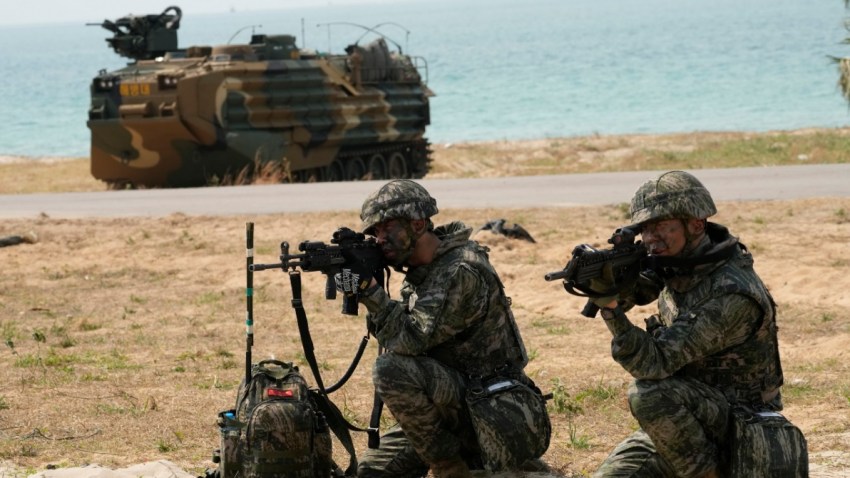Though Northeast Asia is only just moving into spring, South Korea is feeling the geopolitical heat. Since taking office last year, President Yoon Suk Yeol has worked to improve ties with both the United States and China, in part by trying to focus their energies on managing North Korea. Unfortunately for Seoul, North Korea has waned as a priority for both powers. For Washington in particular, when its attention is not focused on Ukraine, it is increasingly centered on the prospect of China attacking Taiwan. And as Beijing has increasingly tested the U.S. military and Taiwan’s defenses, Washington, Tokyo and Taipei are increasing their cooperation and readiness.
Now pressure is mounting on South Korea to clarify where it stands in terms of its readiness to help defend Taiwan in the event of a Chinese attack. Last September, a U.S. State Department spokesperson was asked if Washington wanted Seoul “to support U.S. defense to Taiwan?” Though the question was grammatically garbled and the spokesperson’s response was ambiguous, South Korean media interpreted it as an “indirect” way of saying, yes. Indicating the tenor of Washington’s thinking on the matter, a former U.S. official recently remarked, “Whether South Korea supports Taiwan or remains neutral could play a huge role in whether or not China chooses to pursue aggression against Taiwan.”
To date, Seoul has tried to maintain ambiguity on its position, with some success. Yoon’s predecessor, left-wing former President Moon Jae-in, caused a stir by simply agreeing on the importance of “preserving peace and stability across the Taiwan Straits” during a summit with U.S. President Joe Biden in May 2021. And even those remarks were promptly walked back by a statement from his foreign minister.

